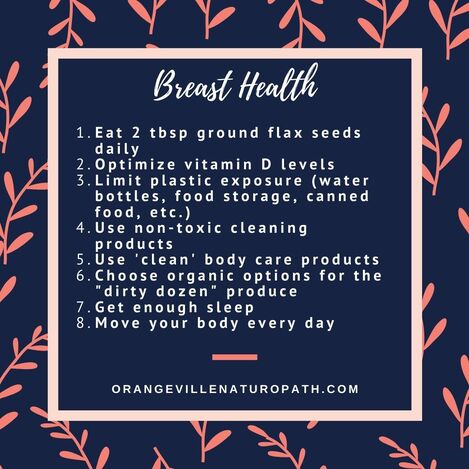October is a month of breast cancer awareness, which is why this topic comes up now (prostates are next in November!). You may think it isn't relevant to you but with the rates of breast cancer being where they are, it's pretty certain you will know someone that is impacted.
Some Numbers:
- 25% of all new cancer cases in women are breast cancer
- 1 in 8 women will experience breast cancer in their lifetime
- 83% of cases occur in women over age 50 (1)
- non-melanoma skin cancers are the most common cancer in women, breast cancer is 2nd
- breast cancer can occur in men but rates are much lower (<300 new cases in men in 2022)
- the risk of breast cancer is higher in developed countries like Canada and the USA
There are various different types of breast cancer depending on the location of cellular changes and tumour growth. You can learn more about the anatomy here. The breast is made up of fat, connective tissue, ducts, and glands; but there are also many blood and lymph vessels in this area as well. The lymph vessel drain into lymph nodes mainly around the collarbone and armpits (axilla). (2)
The risk of developing breast cancer may be increased by: family history, BRCA or other genes, if you never had a pregnancy or breastfed children, radiation exposure, hormone replacement therapy, oral contraceptive pill, obesity, alcohol use, inactivity, smoking, shift work & artificial light exposure (because of melatonin interference) (3). It's also important to note that not all breast cancers are hormone dependent, though many are. One of my colleagues that works strongly in the cancer space will often mention our constant exposure to not just probable, but even known carcinogens. It's quite likely that not just one exposure, but the buildup over time that creates issues.
Breast cancer screening in Ontario takes the form of mammograms every 2 years age 50-75 (forgive me if this recommendation has changed). Often in-office breast exams are only performed if there is a concern, or during a physical exam that occurs with PAP testing every 3 years. It is suggested that you get to know what your own tissue feels and looks like, ideally about a week or so after the start of your period if you are cycling, and then you can detect personal changes if they occur. Other ways to assess the breast tissue are ultrasound, thermography (not diagnostic), CT scan, or MRI.
Now, I'm not personally someone that thinks that the colour pink will eradicate this disease. Awareness and acknowledgement are just the very first step. It's not always easy to pinpoint a direct cause for any illness, there are always a number of variables and triggers that lead to imbalances and ultimately disease in any part of the body. Let's talk about the ways we can support breast health overall.
Supporting breast tissue comes down to three general themes:
- Limit exposure and stimulation by xenoestrogens (estrogen mimickers) and toxins, and other steps to promote healthy hormone function
- Improve excretion and elimination of hormones and toxins from the tissue
- Optimize movement of things out of the body in general via the lymph, gut, and skin
A fourth theme is to think about how the topic of boundaries, control, and stored emotions might be impacting your mental state and the flow of emotions and energy through your body
- limiting artificial fragrances and scents (aka chemicals)
- expose yourself to natural daylight
- maximize lymph flow with yoga, dry skin brushing, saunas, contrast showers, herbal lymph tonics and homeopathic drainage
- support liver, kidney, bowel, skin health for elimination of waste products
- use alcohol and tobacco sparingly (don't shoot the messenger!)
- read food ingredients - there's a lot of yucky things in packaged foods
- castor or other breast oil topically
- check to see whether you breakdown estrogen into more or less damaging forms (DUTCH test)
- consider the impact that sugar has on the immune system and inflammation
If you'd like to discuss your risk factors and ways to support your health, we should chat soon. Fall is the perfect time to realign or create healthier habits.
Talk soon,
Dr Christa
Book Appointment
1. https://www.canada.ca/en/public-health/services/chronic-diseases/cancer/breast-cancer.html
2. https://cancer.ca/en/cancer-information/cancer-types/breast/what-is-breast-cancer/the-breasts
3. https://cancer.ca/en/cancer-information/cancer-types/breast/screening
This article is intended for information purposes only and does not replace medical advice.


 RSS Feed
RSS Feed